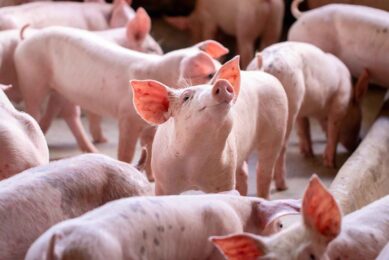US: FMD research may move to mainland
The US government is considering moving its research on one of the most contagious animal diseases from an isolated island laboratory to the US mainland near herds of livestock, raising concerns about a catastrophic outbreak.
An epidemic of the disease could devastate the livestock industry. A government report combined commercial satellite images and federal farm data to show the proximity to livestock herds of locations that have been considered for the new lab.
Possible locations for the new National Bio-and Agro-Defense Facility are Athens, Georgia; Butner, North Carolina; San Antonio; and Flora, Mississippi. The new site could be selected later this year, and the lab would open by 2014. The numbers of livestock in the counties and surrounding areas of the finalists range from 542,507 in Kansas to 132,900 in Georgia, according to a Homeland Security study.
Contagious
The FMD virus can be carried on a worker’s breath or clothes, or vehicles leaving a lab, and is so contagious it has been confined to Plum Island, New York, for more than a half-century — far from commercial livestock.
The existing lab is 160km northeast of New York City in the Long Island Sound, accessible only by ferry or helicopter. Researchers there who work with the live virus are not permitted to own animals at home that would be susceptible, and they must wait at least a week before attending outside events where such animals might perform, such as a circus.
However, the Homeland Security Department is convinced it can safely operate the lab on the mainland, saying containment procedures at high-security labs have improved.
The livestock industry is divided. Some experts believe research should be kept away from cattle populations. The new facility will add research on diseases that can be transferred from animals to humans. The Plum Island facility is not secure enough to handle that higher-level research.
Related website:











